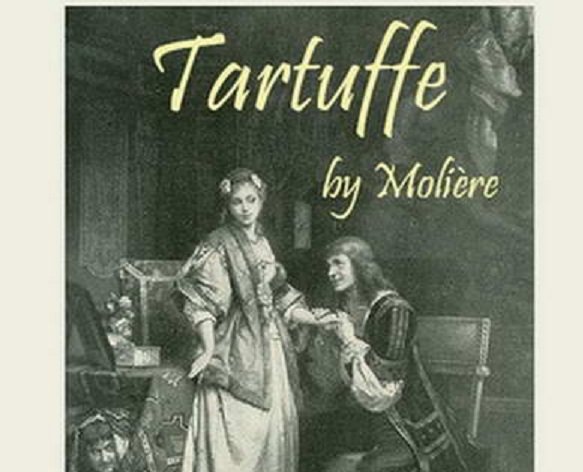About "Tartuffe" by Molière
In 1627 France founded the most powerful of the secret religious brotherhoods, the Brotherhood of the Holy Communion, in which spiritual and secular faces, known for their fanatic doom of Catholic faith, took part. The Brotherhood's original goal was to develop charity, but it soon turned out to be the most zealous, hard advocates of Catholicism in its ranks. The members of the Holy Communion, generously patronized by the Jesuits, soon acquire scandalous glory with their notorious deceptions and blackmail. The Brotherhood, which united for a short time the most zealous preachers of Catholicism, collapsed in 1665.
The most likely assumption about the emergence of the idea of creating the comedy "Tartuffе" could be concise in the following way: Molière apparently aroused the danger of penetrating fanatical scammers from the Brotherhood of the Holy Communion into the good, citizens. The great comedogue obviously did not feed any illusions about the seemingly "selfless" preaching activity of the brothers who received the secret blessing of the Jesuits. With his comedy, he had hoped to preach some devout fathers from the adventures of the evil "brethren" of the Holy Communion who, under the cover of the "holy" spiritual mission, pursued unclean, loose ends.
The courteous comedian Molière composes the comedy "Tartuffе" that reveals the pious hypocrisy about the traditional royal festivities at Versailles Palace, known for their exotic sounding "The Pleasures of the Enchanted Island". The play was first presented on May 12, 1864 in front of the royal court of the Lord's Corps. from Moliere's acting troupe, which was patronized by the Lord (with this title being known in the country of Louis the Great's brother). King Louis XIV and the young aristocrats from around him like the new work of the courteous comedian. But immediately after the first performance of The Deceiver, a conspiratorial corps of zealous supporters of the Brotherhood of the Holy Communion was formed, who by all means began to act to ban the "scandalous" comedy. Malicious conspirators win the Queen Mother, Anna Austrian, who, according to the rumor, was deliberately represented in the unfavorable light in the image of Mrs. Pernel, the heroine in the play, whose naive loyalty repeatedly laughs at viewers. Molière does not succeed in generating the favor of the king, who succumbs to the stubbornness of senior church dignitaries, and his comedy is forbidden. The fiercest abbot Pierre Roulet, governor of the Church of Saint Bartholomew, is the most fierce in his attacks on the author of the Deceiver. He protests against "the ungodly and volitional claim" Molière , describing it as a "devil, bent on human flesh and dressed as a man," who, in his view, "must be punished with death penalty", be burned at the stake to redeem "such a severe sin as the insult of the greatness of God." Molière's comedy, already titled "Tartuffе" appeared again on stage on February 9, 1669, only after the death of Anna Austrian. The King permits his presentation. The play has unparalleled success for the time - the actors play twenty-eight consecutive performances, and each evening they receive the applauding applause of the audience mastered by the artist.

Wait you wrote, that the play was presented on the 12th of May 1864 and after that it appeared again on the 9th of February 1669. The first date doesn't make any sense.
Good work brother
Thank you :)